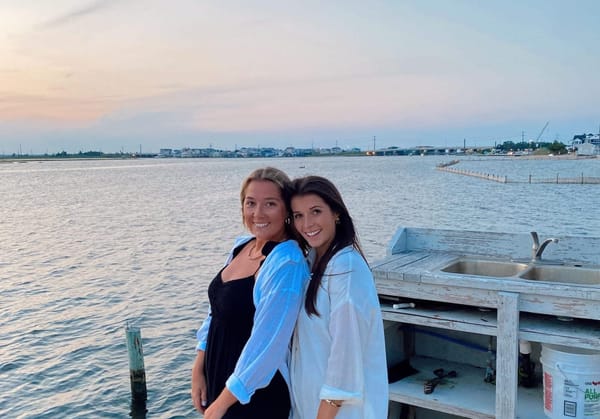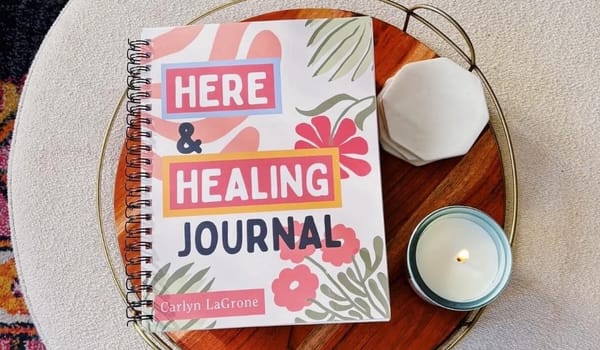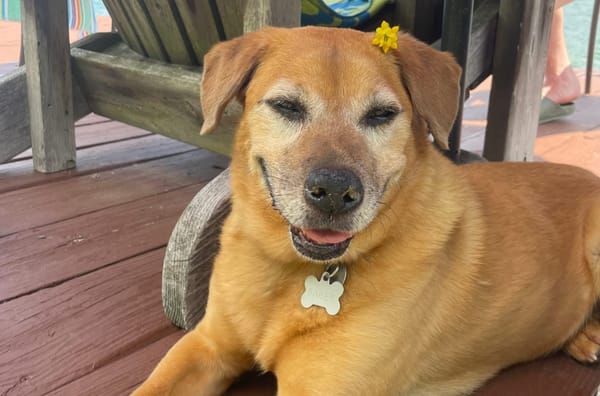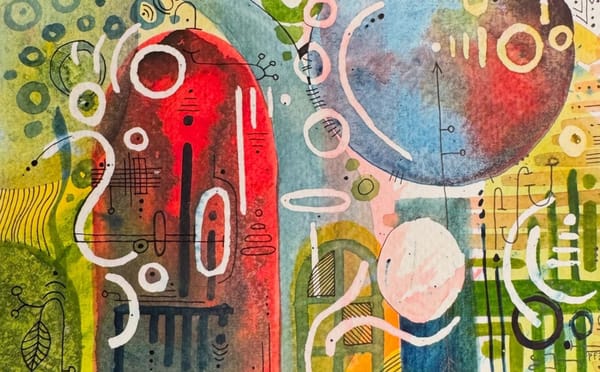Sam’s Story: “You Can’t Wait For Life To Get Easier.”
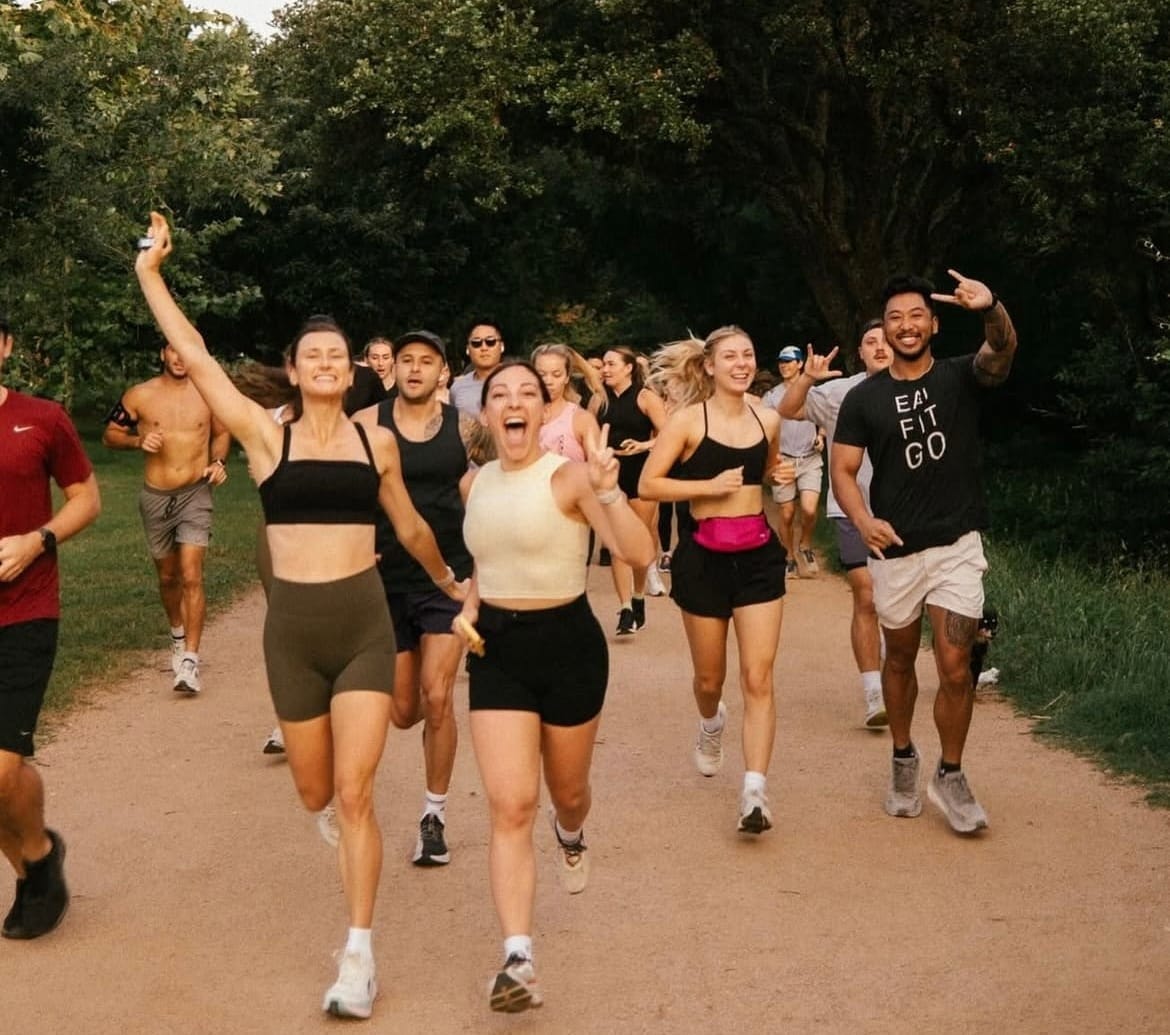
On Monday mornings at 7 a.m., runners lace up their shoes and gather outside a local coffee shop in Austin, Texas. Rain or shine, they run not just for fitness, but for healing. Leading the group is Sam.
Sam wasn’t always a runner. Just a few years ago, she couldn’t run a mile. Today, she leads Good Grief Running, a club that welcomes hundreds of people to move through life’s hardest moments together. “Even if you've never been on a run in your life, you can show up and still feel included and welcome,” she says.
In 2022, Sam’s life was upended. Both of her parents were diagnosed with cancer while she navigated the end of a long-term relationship.
“I collapsed to the floor sobbing. I don’t think I’ve ever experienced such physical sadness.”
For eight months she was in and out of hospitals, flying between Austin and Buffalo, bracing for bad news.
“My mental health rapidly declined for so many reasons. Grieving the thought of losing your mom as a woman in her early 20s — that's unfathomable. So it was the pre-grief of thinking about her not being there in the future.”
“I was going out drinking until 4 in the morning, and I would cry all the time. It just made me feel so much worse.”
She felt her life had split in two. “I was a 26-year-old girl living in Austin, who had not a worry in the world. And then all of a sudden I was flying back home to Buffalo, taking care of my mom, while watching my friends go on trips to Europe, get engaged, and have their moms walk them down the aisle. Things you take for granted until you don’t have them anymore.”
Her mom passed away that November.
Sam spiraled. Nights out drinking led to panic attacks and depression. “It constantly felt like there was a big cloud over my head.”
Sam felt like she didn’t know how to carry on without her mom. Her depression and anxiety deepened, making it hard to get out of bed.
When she started feeling like she no longer wanted to live, she sought out therapy. Her therapist encouraged her to set a big goal to work toward.
“That's when I just went out on a limb and decided, ‘I'm gonna run a marathon.’” She signed up and raised money for lung cancer in honor of her mom.
“Things flipped and I was like, okay, I want to be someone that my mom would be proud of — someone I'm proud of.”
Her mental health began to improve. “The first time I ran more than 10 miles, I sobbed because I never thought I could do it... It felt really good to show up for myself.”
As she kept running, Sam found community in local run clubs. One of her friends, Carl, had also lost his mom. During their runs, they often talked about their moms and realized there wasn’t a running group dedicated to mental health and grief.
In May of 2024, she brainstormed what this could look like. Carl sent her a song titled, “Good Grief,” written by someone who lost his mom unexpectedly. “And I thought, oh my gosh, that’s the name. It’s perfect.” Sam designed a logo and launched an Instagram to get the club started.
The first run consisted of 20 friends. She asked a local coffee shop if they could meet there. “It was very small, and I got up on a table and explained, this is why I want to start this. This is my story.”
From there, the club spread through word of mouth and social media.
“I wanted to open the door and make it less stigmatized to talk about things like grief or cancer. Those subjects can be really hard to bring up because no one wants to be a downer. But if you remove the stigma, people can share ways to get through it and support each other.”
They don’t spend every Monday morning talking about grief. What binds the group is an understanding that everyone is carrying something. The strength comes from showing up and seeing you’re not alone.
The club’s influence has flourished. Around 200 people now show up every Monday morning, and this year Good Grief Running expanded and launched in Washington, D.C.
Sam shares a story that highlights the club’s impact: a runner who had followed Good Grief Running on Instagram but never attended reached out to Sam, sharing that he’d lost his sister unexpectedly — and decided to join one morning.
"After the run, he posted that it was the anniversary of his sister’s passing. He didn’t know how to get out of bed that day, but he showed up to honor her and found himself surrounded by supportive people, which made going through the day a little bit easier. It was really special.”
Looking back, Sam sees how far she’s come. Leading Good Grief Running has given her purpose and community. “It has shaped my worldview of grief — that it doesn’t always have to be this cloud. Beautiful things can come out of it.”
Though Sam is healing, she struggles every day to live a life without her mom. “There's just such a special relationship between a mom and a daughter. And I think about, how am I going to go through my life without having my mom at my wedding or meeting my children?”
Her mom’s words continue to guide her: You can’t wait for life to get easier before you decide to be happy.
Sam feels her mom’s presence on every run. Before she passed, she promised that her sign from heaven would be a heads-up penny — any time Sam found one, it was her way of saying hello.
Sam’s nephew seemed to find them everywhere, but she and her sister never did. “We were like, what the heck?”
“On the morning of the marathon, I was so nervous — because oh my gosh, I'm about to run a marathon. I'm standing at the start line, the gunshot goes off to start the race, and I look down. There was a heads-up penny at my feet. I immediately started sobbing before I even started running. And I was just playing songs that reminded me of her and I felt her with me the whole way,” Sam remembers.
“I still have that penny.”

